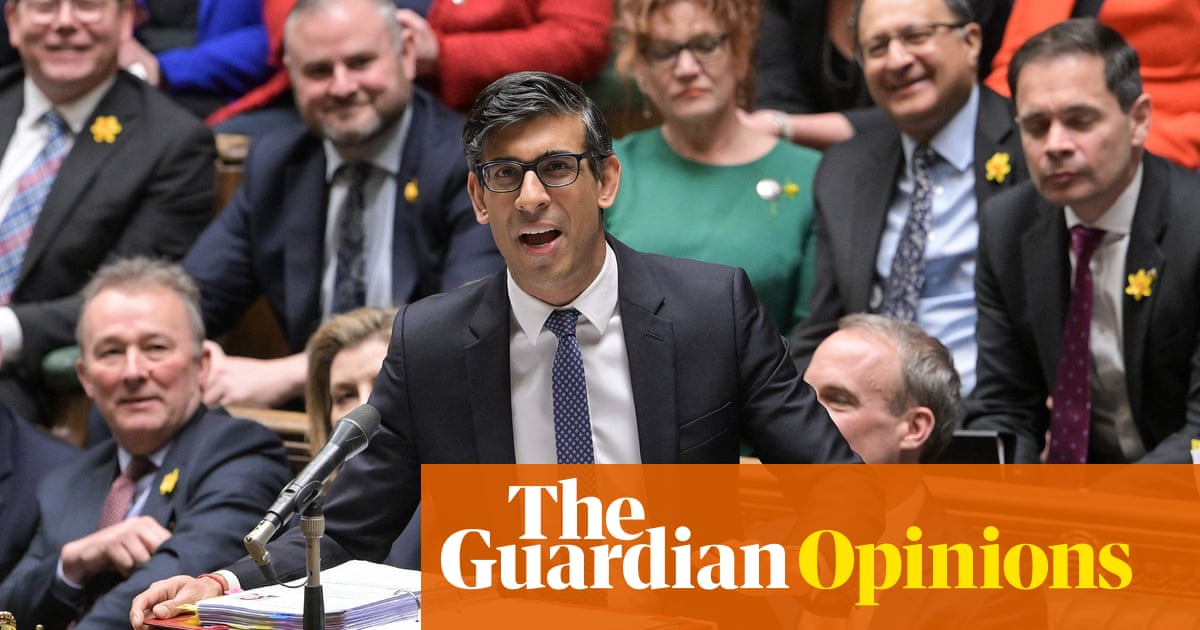
hat is deemed permissible in mainstream public life and what is not? Survey the British media landscape and you’ll find some answers. Two years ago Nick Ferrari, presenter of LBC’s flagship show, was on a Sky News panel with my colleague Afua Hirsch. She had eloquently questioned the glorification of British historical figures guilty of racist crimes. “Why do you stay in this country?” Ferrari responded. “I’m delighted that I see you each Thursday … but if it offends you so much, how do you manage to stay here?”
Phrases such as “Go back to where you came from” have long been a staple cry of the street-level racist. For a national radio presenter to evoke this line of questioning because someone dared to critique the nation’s chequered history should have been a moment of scandal, but it wasn’t. Some spoke out, but most did not. Ferrari remains a respectable broadcaster, who continues to collect awards for his work. His example isn’t isolated. Last year, Tom Newton Dunn, then the Sun’s political editor, published a far-right conspiracy theory partly sourced from neo-Nazi websites featuring links between leftwing figures (including me) and “illegal terror organisations”. The article was simply deleted after publication, no explanation given. Newton Dunn’s career flourishes, and his colleagues and peers remain silent.
This brings us to an episode this week involving Keir Starmer. All Labour leaders must confront a dilemma unless, like Tony Blair, they strike a Faustian pact with Murdoch’s media empire in exchange for abandoning policies that would profoundly redistribute wealth and power. According to the former Barack Obama and Conservative party adviser Jim Messina, the average voter spends four minutes a week thinking about politics. If you are seeking to reach broad swaths of the electorate, engaging with the mass media – which is likely to set the terms of debate for those precious four minutes – is an unavoidable necessity, which led Jeremy Corbyn himself to once write a column for the Telegraph.
These are the considerations Starmer’s team undoubtedly weighed up when they decided to accept an invitation to appear on Ferrari’s LBC show on a monthly basis. But this week something happened that should perhaps make them reconsider. A caller named as “Gemma” phoned in to supposedly defend her husband booing Millwall players after they took a knee. She proceeded to deliver talking points of white supremacist propaganda, claiming “racial inequality is now against the indigenous people of Britain, because we are set to become a minority by 2066”, and asking why, as a “white British female”, she did not have the same rights as those enshrined by Israel’s 2018 “nation-state law” – which stated that “the right to exercise national self-determination” in Israel is “unique to the Jewish people”, and which was met with cries of “apartheid” by Israeli Arab parliamentary representatives when it was passed.
Neither Ferrari nor Starmer rebutted what was effectively the white supremacist “great replacement” theory on national radio, with the Labour leader merely responding “we all have those rights” and defending taking a knee as “recognising some injustices have been going on for a very long time”.
This failure angered several black and minority ethnic Labour MPs, both privately and publicly: Norwich South’s Clive Lewis called it “frankly appalling”, while Luton North’s Sarah Owen declared that the “idea of ‘indigenous people’ of Britain and use of this term, especially by far right, needs to be challenged at every point”. In a statement, Starmer rejected the “conspiracy theory” the caller espoused.
There are multiple explanations for Starmer’s failure, some more generous than others: that he was caught off guard (unfortunate for a forensic lawyer); that he believed engaging such a person in a prolonged discussion was counterproductive; or that he believed passionately rebutting her would somehow alienate the socially conservative voters Labour needs to attract. Whatever the reason, a failure to confront far-right extremism when broadcast to a mass audience leaves it emboldened and legitimised. An effective, robust response – such as when John McCain confronted a Republican voter who called Obama an “Arab” – could have become an educational moment in how to confront white supremacy. Some claim Starmer sidestepped a “culture war” trap, but he did address the lesser “culture war” point about taking a knee. It was just the far-right extremism that went without rebuttal.
But another significant argument is why Starmer should appear on Ferrari’s show at all. We can readily accept that callers such as “Gemma” represent an extreme element in Ferrari’s audience while doubting his audience offers a rich crop of floating voters. It is a truism – accepted by commentators on left and right – that the voters who have abandoned Labour are socially conservative but economically rooted on the left. But unless Labour wishes to alienate younger progressive voters who lack the natural partisan loyalties of previous generations, conceding to the right on social issues is a no-go. Instead, an economic prospectus that is convincing and compelling enough to override socially conservative objections must be offered.
A platform such as Ferrari’s LBC show can never do that: it will always offer up a platter of “culture war” traps. Starmer has so far had an infinitely easier ride in the media than his predecessor; yet the next election remains distant, and the Tories retain a polling lead. Ferrari is not Starmer’s friend, and nor should he be. But above all else, this approach holds little promise in winning back Labour’s lost tribes, while conferring legitimacy on prejudices that deserve unequivocal challenging and nothing else.
• Owen Jones is a Guardian columnist












